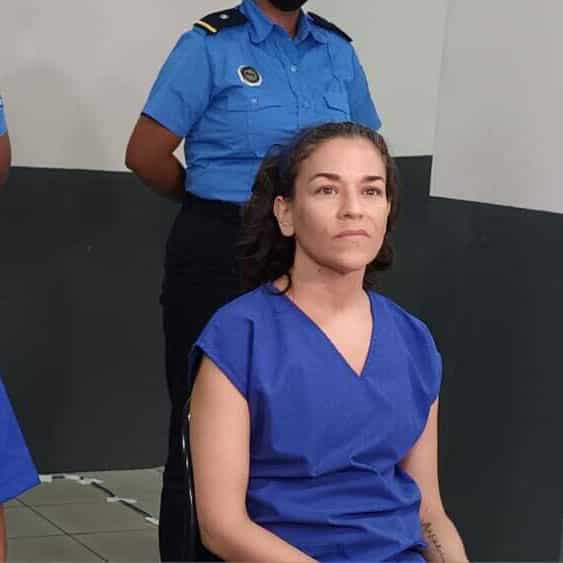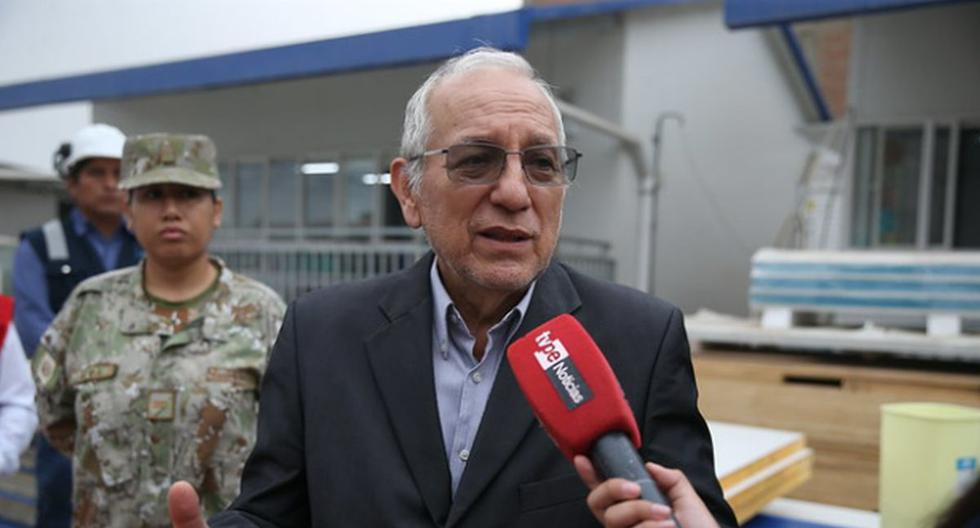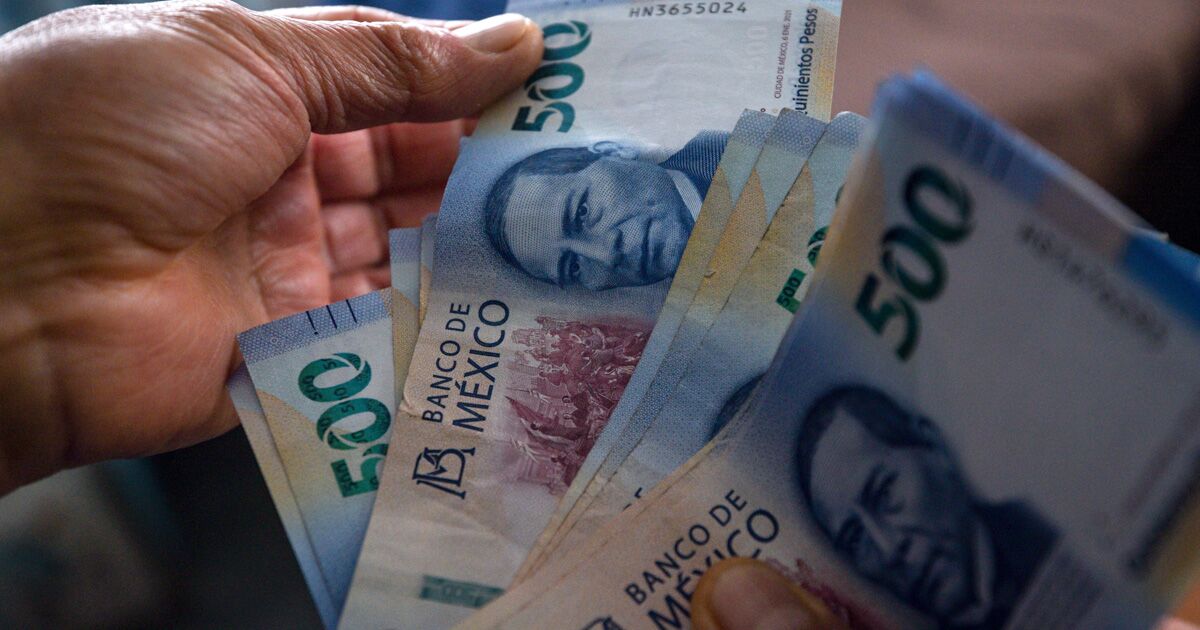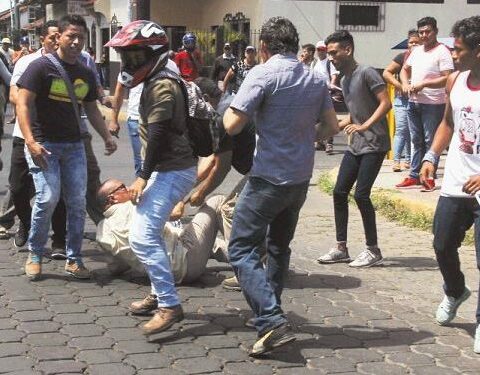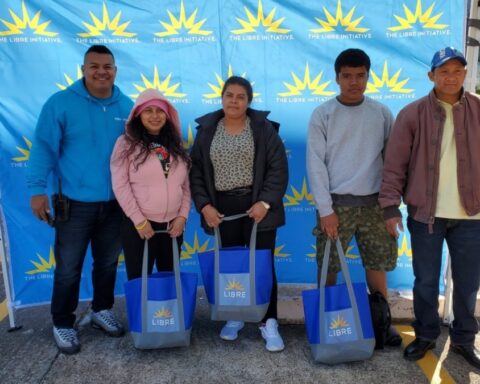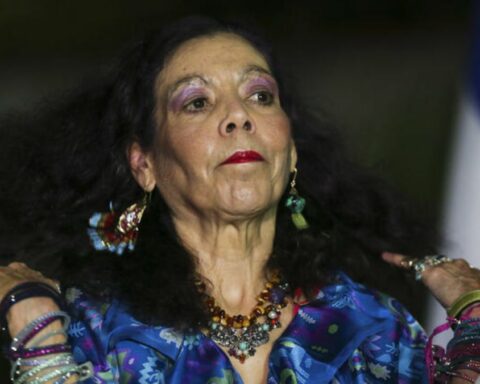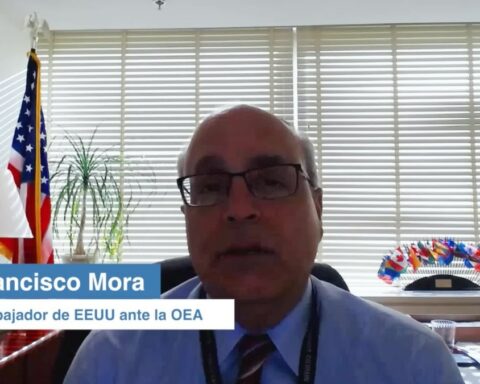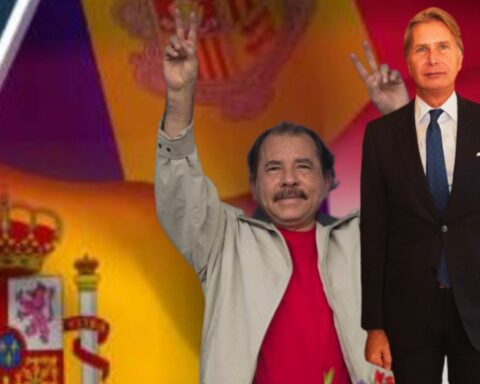The 606 days that the political activist Tamara Dávila remained in jail, after being kidnapped by the regime of Daniel Ortega and Rosario Murillo, means “a hard learning curve”, but “key” in her life, in which they came out stronger their convictions to seek a democratic solution to the sociopolitical crisis and the police state imposed by the dictatorship.
In an interview for the program Tonight, which is transmitted by Facebook and Youtube Due to the censorship of the regime, the express politician recounted the violent capture by agents of the National Police, and the suffering due to the psychological torture that she experienced in El Chipote, mainly due to the regime’s prohibition on allowing visits from her family, mainly her minor daughter.
However, Dávila, who after being released, was exiled to the United States by Ortega, along with 221 other prisoners of conscience, He expressed his confidence in the political brotherhood gestated in the cells of the dictatorship of the true opposition leadership. “The objective of the regime to bend our bodies, our spirit and our mind. He didn’t make it,” he said during the interview.
You spent 606 days in solitary confinement cells at El Chipote, how are you? How have these first four weeks in freedom been?
My condition of isolation in El Chipote, lived by three more women with me. We were in solitary cells for all that time and we resisted. We managed to get out alive, thanks in the first place to the energies and the work that we knew that everyone was doing outside for us. We also resisted and came out, not only us, but also all the prisoners who were in the different jails of the country, convinced of the urgency of continuing to work to get out of this dictatorship.
On the day of your arrest, June 12, 2021, what happened at that time and how did the following hours pass?
It was violent, as were all the raids and kidnappings in that period. At my house were my daughter and two friends who had come jointly to accompany me, because we knew that this search and kidnapping could happen at any time. In my case, I was the one who opened the door of my house to the police and, nevertheless, they hit me in the face. Not with a clenched fist, but with an open hand. I bled from my nose and despite that, I told them: ‘I’m here, you’re looking for me, don’t go in, there’s an underage girl inside.’ However, they entered, beat me and put me in the police car, dragging me by both arms. At that moment, I am anguished for my daughter and because I see that there is a huge police deployment that is entering my house.
I raise my face to try to look behind and the driver of the patrol car tells the two female officers, who are on each side of me: ‘put your head down on that coup plotter, daughter of a big b… I don’t want to see her’ . Then they forcefully lower my head again and I start to bleed from my nose. That’s when I realize that I’m bleeding and there too, the two officers who are next to me realize it. One of them was the one that had hit me. She scared me a lot. I didn’t know where they were taking me. I was very afraid because this is a regime that has murdered and I feared for my life on that journey. My soul returned to my body when I heard on the intercom of the policeman who was driving the patrol, that we were arriving at the Directorate of Judicial Assistance and there I knew that I was going to be in prison, that I was going to suffer, but that I was going to be alive and I decided to leave from there alive.
In Judicial Aid they put you in a confinement cell, totally sealed. What were those cells you were in like?
The cells in the Directorate of Judicial Assistance are different depending on the corridors. I was in a corridor where there were four cells. The first two cells were different from the two back cells. My cell had a bolted door, it had no bars. In that cell there was a skylight, where I could see the sky and two small windows, one in the toilet and one in the cell. So a lot of light came in, I could see the sky, I could see the horizon, the little birds came in. I was alone in that cell, but I had that little bit of light. The other prisoners were in cells with bars, they could see each other, but they didn’t have as much light as I had. I had that great advantage, in relation to the rest. I was isolated and had no human contact, other than with the jailers who opened and closed the hatch of my gate to give me my food or my medicines, at different times of the day.
surviving isolation
Why did you stay alone all that time, did they give you any reason?
None. That was the order received by the Directorate of Judicial Assistance from Daniel Ortega and Rosario Murillo.. The order to keep the four women alone in the cells, in isolation, incommunicado and absolute inactivity, as they kept the more than 80 people who were there for almost two years. If they took you out of your cell, regardless of which cell you’re in, you can’t lift your head, you can’t see to the sides, you can’t say anything. You can’t move your hands, make any gesture, you don’t have access to books, you don’t have access to anything, just your food. Even having access to personal hygiene products depended on the will of who was in charge that day. But that was actually the decision of Rosario Murillo and Daniel Ortega. They are the only ones responsible for everything that has happened in the country since 2018, and they were the ones who gave the orders of how they were going to treat each one of us, with first and last name.
How did that isolation impact you?
It was very hard because, despite the fact that many of us already knew that this could happen at any moment, one never expects the cruelty with which the regime acts. I did not expect, for example, that I would not be allowed my family visits, as established by the Nicaraguan Penitentiary System Law. We had our first family visit three months after being imprisoned and with terrible anguish, because your family knew nothing about you, and we much less. I didn’t know if they had been jailed, if they had beaten our sons and daughters, who were in our houses during the raids. That is enormous psychological torture. It was very hard, it was completely illegal and unfair, but we have come out stronger. We have come out better than the regime is and than Daniel Ortega and Rosario Murillo are, at this moment.
You mentioned Ana Margarita Vijil, Suyen Barahona and Dora María Téllez, who were the other three women who remained under conditions similar to yours. Why so much viciousness against you?
I think it has to do with the fact that the four of us are part of Unamos and that we were in leadership positions in the party, and that we are women. Daniel Ortega and Rosario Murillo have a particular viciousness against women in general. For example, María Oviedo and Violeta Granera, who were in a cell together, also had a situation of isolation and psychological torture. I think these are some of the elements, but honestly I don’t fully understand what all the elements that led them to that decision could be.
What did you do to deal with the isolation, you couldn’t talk to anyone, what did you do?
I started to exercise a lot, I walked a lot. I used my square meter. I have the happiness of having had two mothers, one of them is an educator, and since I was little I always listened to her lectures on Pablo Freire, who said —in her voice— that if you don’t use the power you have in your square, someone else is going to use it. The day I stepped foot in that cell, I decided to use my square footage and I decided to use the power I had over myself.
The regime’s goal was to break us all, not just me. Bend our bodies, spirits and minds. Go crazy, and I said no. they will not achieve. I’m going to use my square meter, as I learned from my mom, and I’m going to get out of here healthy. I started proposing routines during my day. I began to exercise, to pray and see the sky, to listen to the birds, to be thankful for the things I had. I also began to sing, I sang very softly at the beginning. When they let us speak, at the end of last year, well, we already began to sing a little louder. He sang the Peasant Mass a lot.
Trials showed the decadence of the regime
You were convicted of “treason”, what did they ask during the interrogations?
Those who were in the National Coalition, those who were in the Civic Alliance, in CxL, in Unamos, in the political parties, about the democratic solution that we proposed. There was a lot of that in the interrogations. Then the interrogations were about people. What was going on with this one? Who was this person? I did not answer a single question around the people, about whom they asked me. I always said that I was going to speak for myself, about what I had done, which I do not regret and I will continue to do and say, even while in prison.
What happened at the trial, what evidence was presented against you? Were you able to defend yourself or were you able to speak at the hearing?
I was able to speak at the hearing, at the end of the seven days. The judge gave us two minutes with our lawyers and allowed us three minutes to speak. That trial for me was an enormous learning experience. On the one hand, realizing the decadence of the regime, the judicial system, the National Police, and how this regime is maintained solely by repression. It was a huge lesson to see how decadent this regime was,
The tests, in none of the cases of political prisoners since 2018, are really tests. There were my daughter’s drawings, ten empty music boxes, painting books, my daughter’s diary, which I asked for from day one. My daughter’s diary that she did not have to be in a legal indictment, which is a violation of children’s rights, that was completely absurd. Let’s say that the most dangerous thing in evidence of my political activism, not of any crime, was the megaphone they had there as evidence, as if it were a firearm.
The lessons of the prison to the opposition leadership
What were the lessons for all the civic leadership that was imprisoned?
I think the biggest and most beautiful lesson is that we have many differences, but what brought us together and what unites us is our deep love for Nicaragua. Our desire to live in our country and for there to be democracy. That we can continue to be different, that we can continue to think differently, that we can group where we want, but that we can also live that freedom in our country. Ortega made the serious mistake of having us all together in one place. We are twinned in pain and we are twinned in love for a free, beautiful, democratic and just Nicaragua. That is the great gain from that leadership that Daniel Ortega and Rosario Murillo had, imprisoned for almost two years in El Chipote.
What is the future that you see for the civic movement and what can it do to facilitate change in Nicaragua, given the conditions of repression that exist?
The Nicaraguan opposition is diverse and broad. That is a great advantage over a regime that believes that by imprisoning 80, 70 or 222 political leaders, it would put an end to denunciation and the need to get out of this dictatorship. There was no end to the political prisoners who were there, for almost two years. There was another leadership that was at the forefront, that was influencing. There was active journalism. There were campaigns that allowed us to have better food inside. After the ‘Be Human campaign’, we started to have better and more food. We must continue doing what we have been doing, the denunciation, the civic struggle and the democratic exit of the regime.
We still have 39 political prisoners left, among them Monsignor Rolando Álvarez, the most emblematic figure and the one with the greatest conviction at this moment, but there are 39 people for whom we have to continue advocating and we have to continue denouncing, so that they also come out and then, we have a dictatorship on top of us, for which we have to continue working so that they come out in a civic manner and we are going to achieve it with the help of all Nicaraguans inside and outside the country.

